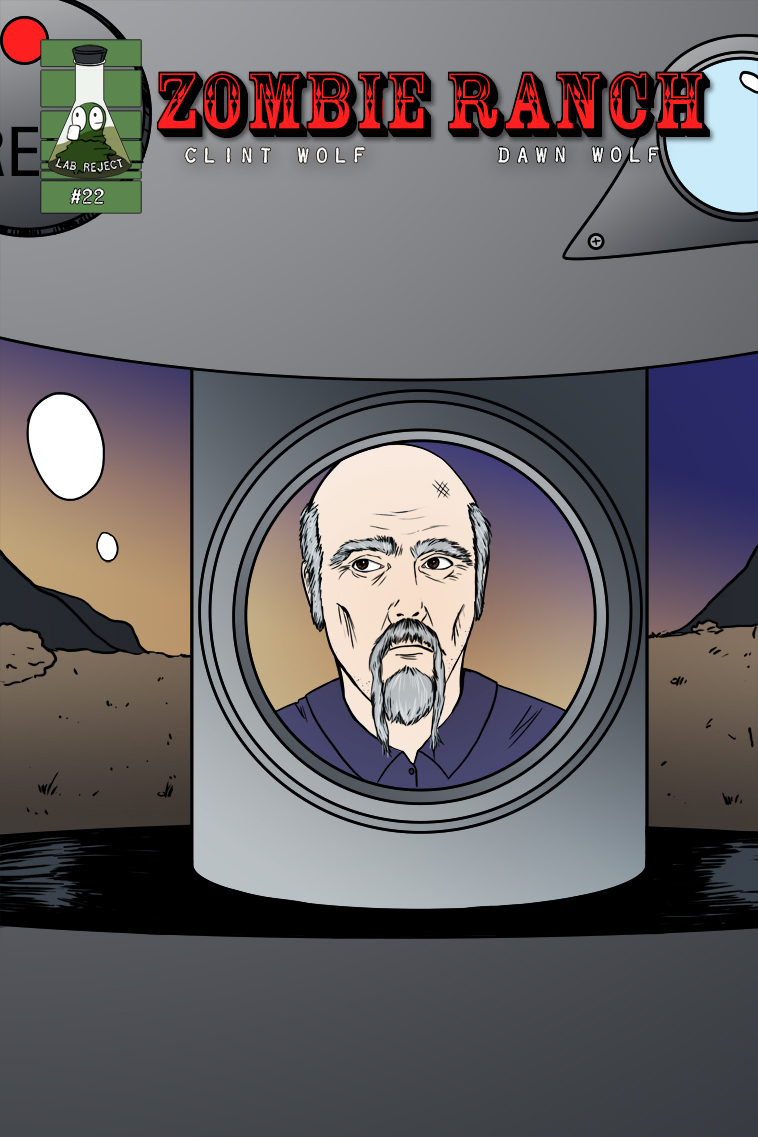Cart
Product categories
Support Us!
If you like what I do please support us on Ko-fi or Patreon.
Follow Us!
Join Our Newsletter!
Vote For Us!
Login
Polls
Events
-
Pasadena Comic Con
Dates: May 24
Location: Pasadena Convention Center, 300 E Green St, Pasadena, CA 91101, USA ( MAP)Details:We will be at the Pasadena Comic Con on January 26th. See some of you there for this one day event!
Purchase tickets online at here: https://www.tixr.com/groups/pcc/events/pasadenacomiccon-pasadena-comic-con-2025-115248
-
San Diego Comic Con: SP-N7
Dates: Jul 23 - 27
Location: San Diego Convention Center, 111 Harbor Dr, San Diego, CA 92101, USA ( MAP)Details:Clint & Dawn Wolf will be at San Diego Comic Con, as Lab Reject Studios. We will be at booth N7 in Small Press.









5 thoughts on “Issue 22 Cover”
Dr. Norman (not a real doctor)
Ooohhh … He looks – desperate.
Zombatar
No hat. He lost his hat. Which had a lot of his personality. Alert! Alert! We have a Lost Hat emergency! This is Not a Drill! Alert! Alert!
Scarsdale
Hang in there, I’m a retired fireman, and those pictures/videos have me sweating… The closest thing to a forest fire I ever fought was when a stupid tried to burn raked leaves on a windy day. 4 houses! Mostly grass and bush fires but, yeah.
Clint
Good news, we are back at home and there was a home to return to. It’s been a crazy week and a serious near miss seeing as several other homes on our block burned. Terrible stuff but the Ranch persists.
Honzinator
Welcome back.
My mom’s whole town, Monrovia, seems to have survived so far, too, but it ain’t over yet.
Latest Comics
#221. 212 – Frank Talk
12 May 28, 2014
#220. 211 – Threat Assessment
14 May 21, 2014
#219. 210 – Body Count
12 May 14, 2014
#218. 209 – Back On Solid Ground
13 May 07, 2014
#217. 208 – I Hear You Knocking
11 Apr 30, 2014
#216. 207 – Finders Keepers
14 Apr 16, 2014
#215. 206 – Freshness Guaranteed
11 Apr 09, 2014
#214. 205 – Candy Corn
11 Apr 02, 2014
#213. 204 – Dire Education
15 Mar 26, 2014
#212. 203 – Breaking Worst
14 Mar 19, 2014
#211. 202 – Unwelcoming Committee
15 Mar 12, 2014
#210. 201 – Start Of Darkness
52 Mar 05, 2014
#209. 200 – Media Huach
50 Feb 26, 2014
#208. EPISODE NINE
47 Feb 24, 2014
#207. 199 – Spirit Guides (END OF EPISODE 8)
48 Feb 12, 2014
#206. 198 – Fear And Loathing
46 Feb 05, 2014
#205. 197 – Good News And Bad News
13 Jan 29, 2014
#204. 196 – Suffering From A Code
12 Jan 22, 2014
#203. 195 – Oh, You Didn’t Know?
14 Jan 15, 2014
#202. 194 – Suzie Get Your Gun
16 Jan 08, 2014
Latest Chapters
Episode 22
Episode 21
Episode 20
Episode 19
Episode 18
Episode 17
Issue 22 Cover
Traditional post-issue comic cover! Episode 23 is currently TBA but we're hoping to have the first page out on January 22nd so as to not leave y'all hanging from the proverbial cliff for too long.
[1/9/2025 NOTICE: Some of you may know we live in the Greater L.A. Area and if you've heard about the wildfires here: yep, we're currently evacuated from our home and still unsure as to its fate. We grabbed our computers and backup drives so whatever happens we still have our files, but definitely expect some delays and cross your fingers that the worst we're going to end up having to do is throw food out of the fridge due to power loss.]
[1/11/2025 UPDATE: Good news, we are back at home and there was a home to return to. It's been a crazy week and a serious near miss seeing as several other homes on our block burned. Terrible stuff but the Ranch persists.]
[1/22/2025 UPDATE: In the post-fire chaos we forgot to mention, no comic this week. Things are intact but there's still cleanup of smoke and ash to do, insurance to wrangle, etc. We had a really close call.
Since we're between issues anyhow we're going to push the start date of Episode 23 back to February 26th. Gives us some room to breathe (literally!).]
Smoothing out the dramatic irony…
Calendar
Writer’s Blog Archives